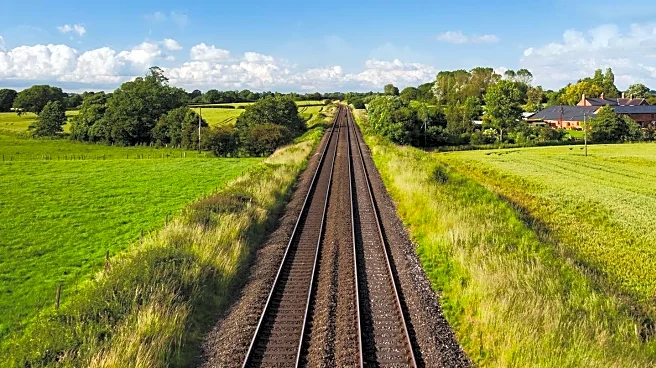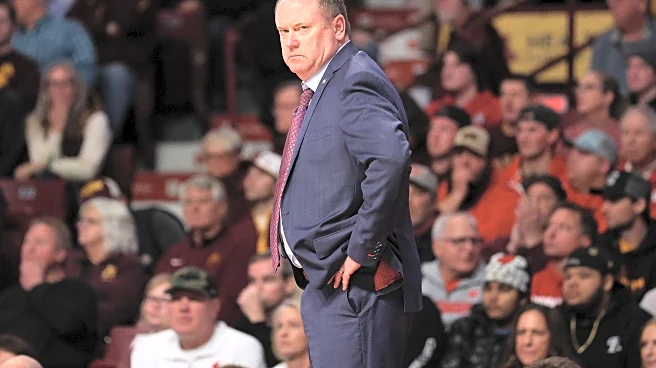What's Happening?
Network Rail is considering the closure or modification of 15 rail crossings in Suffolk, as part of efforts to enhance railway safety. The list of crossings under consideration was revealed in a report to the Suffolk Local Access Forum, a statutory body
advising on public access. Concerns have been raised by local ramblers, including Nigel Meadows from The Suffolk Ramblers, who highlighted the lack of alternative routes for three crossings regularly used by walkers. Network Rail is in the early stages of discussions with stakeholders to explore options for making the railway safer, including potential closures. The process requires a Transport Works and Act Order (TWAO), involving public consultation and approval from the Secretary of State for Transport.
Why It's Important?
The potential closure of rail crossings in Suffolk has significant implications for public access and local communities. These crossings are vital for walkers and residents, providing essential routes for recreation and daily activities. The closures could disrupt established paths and limit access to natural areas, impacting local tourism and community engagement. The decision also reflects broader safety concerns within the railway network, as authorities seek to reduce risks at crossings. The public consultation process will be crucial in determining the outcome, as stakeholders weigh the benefits of enhanced safety against the loss of public access.
What's Next?
Network Rail will continue discussions with statutory stakeholders in Suffolk to assess the feasibility of closing or modifying the rail crossings. The public consultation process will provide an opportunity for local communities to voice their concerns and influence the decision-making process. If Network Rail proceeds with the TWAO, the Secretary of State for Transport will ultimately decide on the closures. The outcome could set a precedent for similar safety measures across the Anglia network, impacting rail crossings in other regions. Local authorities and community groups will play a key role in advocating for public access and exploring alternative routes.
Beyond the Headlines
The debate over rail crossing closures highlights broader issues of public access and land use in rural areas. The potential loss of crossings raises ethical questions about balancing safety with community needs and preserving access to natural landscapes. The situation also reflects cultural shifts in attitudes towards public access, as communities advocate for the preservation of traditional routes. As discussions continue, the ethical implications of prioritizing safety over public access will be a key consideration for stakeholders.
















